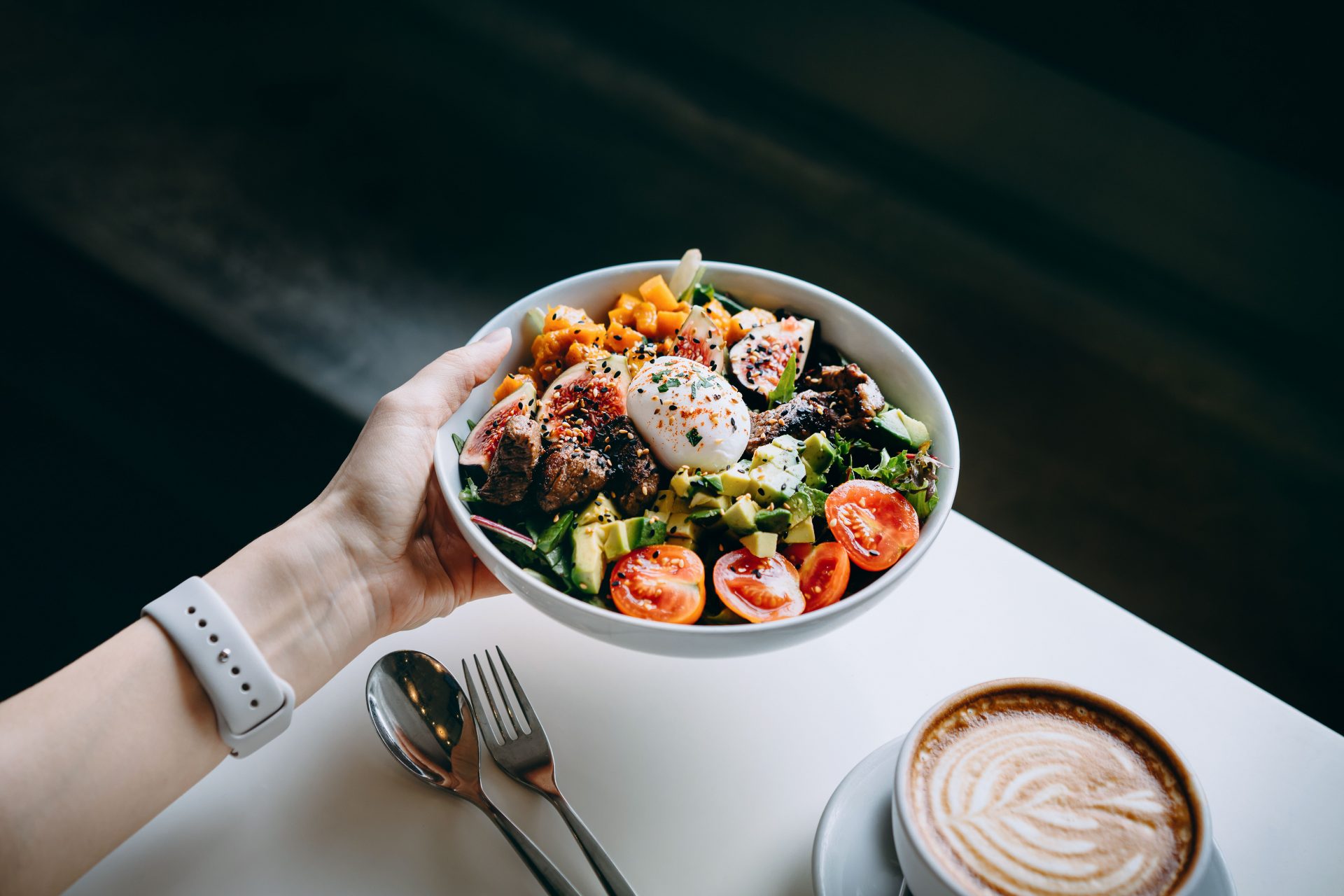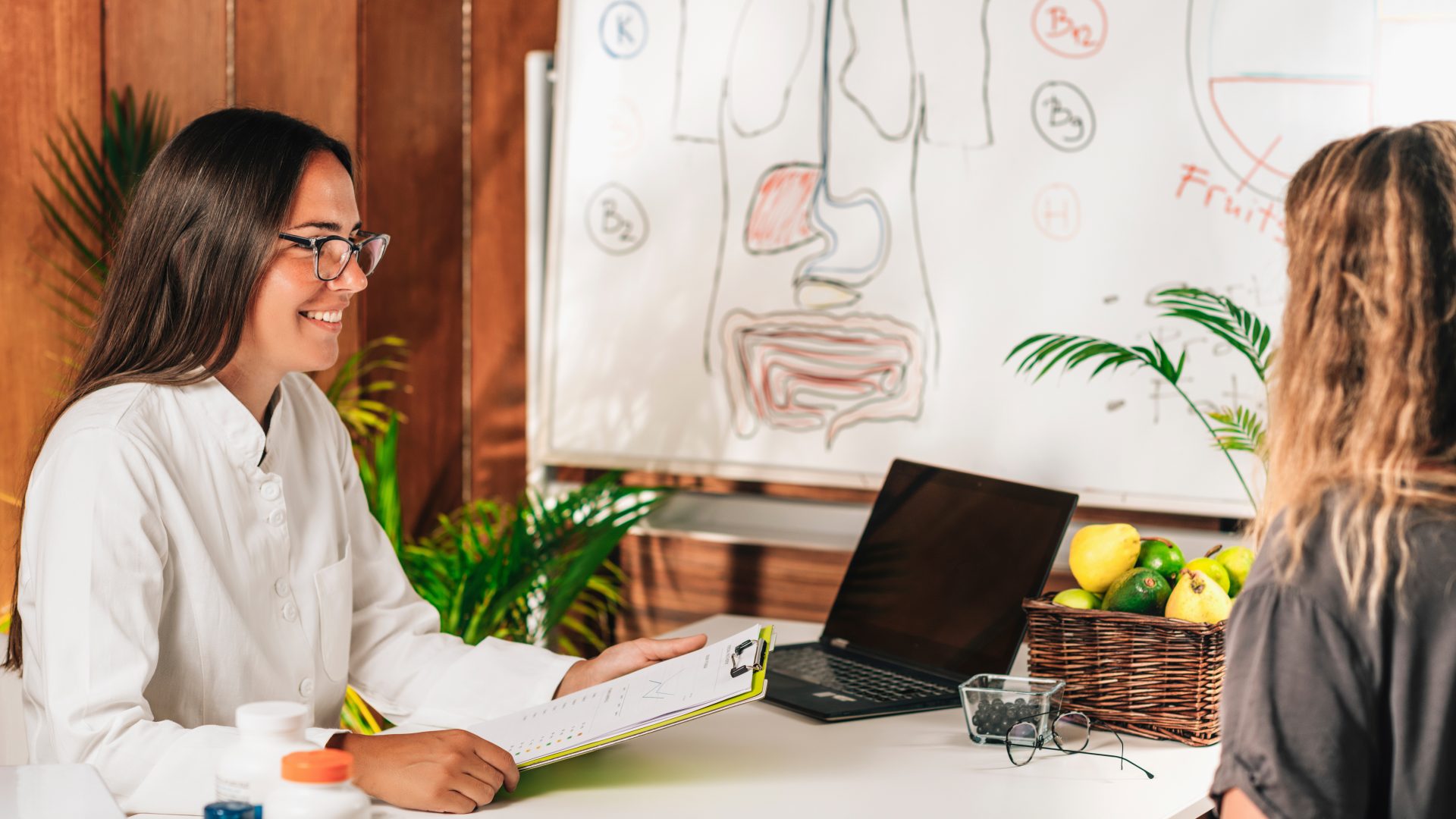Gut lining, microbiomes, inflammation, bloating… we’re constantly batting these words around at the moment. But is all this chat about gut health making us paranoid about totally normal bodily functions?
Six years ago, a gastroenterologist put me on a very restrictive meal plan, known as a ‘low FODMAP’ diet. It meant removing certain types of sugars found in foods that can cause irritation in people with irritable bowel syndrome, such as dairy, gluten, onions, garlic, avocado, asparagus, beans, beetroot… the list goes on.
I did it because I was desperate to find a way to better manage my diagnosed IBS, and was glad to see the end of the miserable few weeks as I started to reintroduce foods. I’ve been thinking about that experience recently, as low FODMAP diets have started to pop back up on social media. #Fodmapfriendly has nearly 234K posts on Instagram, while #fodmapdiet has been used over 137,000 times as nutritionists share the difficult diet with women experiencing IBS.
You may also like
IBS: “I finally managed my gut health – and it did not involve a restricted diet”
Is this necessary? During my time on the diet, I was inundated with leaflets that told me not to attempt the diet without the support and care of a registered dietitian. Now it seems bloating is so mainstream that we’re all trying to find ways to get a handle on our gut health that these extreme diets are going viral. But in our hunt to get rid of bloating, are we just over pathologising something that’s totally normal?
What causes bloating?
“There are lots of hormonal and fluid retention reasons why women in particular bloat, but from a digestive point of view, bloating means that there is gas inside your abdominal cavity – that’s the area from the top of your pelvic bones to the bottom of your ribs,” says Dr Sarah Jarvis, ambassador for probiotic brand Symprove. “In other words, something in your stomach is causing it to be pushed out.”
Eating food is an obvious cause (after all, that big plate of noodles has to go somewhere). But there’s a difference between post-meal fullness and gassy bloating. “Diet plays a major role in what’s going on, but sometimes bloating can also be caused by physical issues or blockages inside the organs themselves.”

Chronic digestive issues like Crohn’s disease, colitis and coeliac diseases all need to be taken seriously. “Chronic bloating – the type that doesn’t go away but persists – and bloating that comes with other symptoms – should always be checked with a doctor,” says Dr Jarvis. These symptoms include generally feeling unwell, blood in stools, abdominal pain, headaches, weight loss and diarrhoea.
Many people who don’t have these illnesses but experience digestive symptoms may use the IBS as a shorthand descriptor for poor digestion. Others may have spoken to their doctor about symptoms and come away with an IBS diagnosis.
But according to Dr Jarvis, many of us might not actually have a clinical issue. She says that the diagnostic requirements of the condition have recently changed: “We used to say that up to one in five women have IBS over their lifetime. Actually, we now know that one in five women have some of the symptoms of IBS in their life, but technically only one in 25 meet the full criteria for diagnosis.”
You may also like
Coeliac disease, PCOS and exercise: how autoimmune and period conditions impact fitness
Dr Jarvis is keen to emphasise that not having IBS doesn’t mean your bloating isn’t a problem. While you might be short of a clinical diagnosis, bloating can often expose issues with our health that GPs and traditional healthcare testing don’t pick up on.
“Interestingly, in women in particular, there is a different tendency to produce gas. This is largely dictated by our gut microbiome. These are the bacteria that we need within our systems in order to digest foods. However, if you have the wrong kind of wrong balance of gut bacteria, then you will very often struggle with gas, bloating or digestive issues,” she says.
Currently, our way of life “often predisposes us to the wrong balance of the microbiome,” Dr Jarvis says. “These include a lack of physical activity, a diet that includes a lot of processed foods and a lack of pre- and probiotics,” she adds.

How to deal with bloating
“Even though we’ve normalised the discussion around gut health, the impact bloating can have on self-esteem can be really destructive. So I think it’s absolutely key that people know that there are things that they can do if they feel like their bloating is out of hand,” Dr Jarvis says.
Talk to your GP about it
It’s not over-pathologising to visit your GP or a dietitian, as often “dietetic involvement can be really useful, particularly if you are looking at which pre- and probiotics to start taking,” she explains.
Get checked for IBS and ask about FODMAPS
“Ironically, a lot of pre-biotic foods like artichokes, garlic, onions can actually cause digestive issues such as bloating. That’s why they are eliminated as part of a low FODMAP diet followed by IBS sufferers, but you need to work with a professional to figure out what triggers you so that you can improve your gut health, rather than further restrict it.”
Don’t just start taking mass market supplements
The real problem is that all of our bloats are unique, varying from person to person and day to day. We should all expect a fullness after eating that can show physically on our stomachs, but it seems taking some time to analyse our bloat isn’t overdramatic – it’s important.
With that in mind, it’s definitely worth working out if any foods trigger a response, looking at other lifestyle factors like sleep and stress and chatting with your GP before you reach for any kind of supplement.
Images: Getty
Source: Read Full Article
